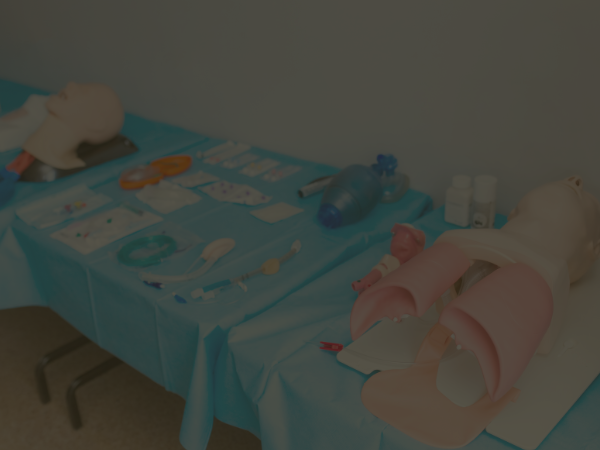Nursing, in any capacity, can be an extremely rewarding career. Nurses across the United States have expressed that the most fulfilling part of their career is helping others and making a difference in people’s lives.
However, like any desirable career path, you’ll find the journey to become a nurse can be a demanding one. From getting into a nursing program, to completing courses, to graduation, nursing school is a competitive process.
The good news is that this level of difficulty produces some of the best nurses in the world. And getting to graduation is an outstanding achievement you and your loved ones can be proud of.
Almost any nurse would tell you it’s worth it and, over the years, those nurses who have completed nursing school have learned some tricks to navigating nursing school like a pro.
Is It Difficult to Get Into Nursing School?
Many nurses and nursing students will tell you, it’s not easy to get into a nursing program. Even after you’ve met the prerequisites with good grades, you may encounter waiting lists and prioritization of other specific candidates.
Insufficient Resources Means Less Students Accepted

In 2019 alone, United States nursing schools turned away over 80,000 qualified applicants due to an insufficient number of instructors, clinical sites and classroom space.
Nursing schools tend to be selective when hiring nursing instructors. Additionally, each professor can only have so many students while still delivering high-quality medical education. Professors try to keep nursing classes smaller so that each nursing student gets the individual attention they need. However, smaller class sizes also mean fewer spots available.
With that said, things are changing. As many university nursing programs move to include more online learning options, this has increased class capacity, allowing an instructor to teach more students without sacrificing quality.
The number of nurses nursing schools can produce has gone up significantly over the past three to four years. For example, the number of annually-graduating nurse practitioners has nearly tripled over the past decade. The number of nursing graduates who become Registered Nurses (RN) has also increased significantly to over 155,000 new RNs per year.
That may seem like a lot. But the Bureau of Labor Statistics estimates that nearly 300,000 registered nursing positions will need to be filled over the next 10 years, as current nurses retire or advance in their careers.
Prepare for Prerequisites
Prerequisite courses are college courses you complete before you begin taking nursing classes as an official nursing student. You’ll typically spend two to four semesters completing these courses before you apply for a nursing program.
The courses may include subjects like Chemistry, Nutrition and Biology for medical students. While some of these are only indirectly related to nursing, how well you do on these courses will impact how hard it is for you to be accepted into the nursing program at the university.
You’ll usually need a minimum GPA of a 3.0 on the prerequisite courses to enter a bachelor’s degree nursing program and 2.0 for an associate’s program. These are only the required minimum GPAs, so know that having a higher prerequisite GPA may give you a boost onto the short list when universities are reviewing candidates.
Most nursing schools will also have you take an entrance exam to show you have some basic knowledge needed to succeed in a nursing program. These exams don’t expect you to already know how to be a nurse. Rather, they’re to measure your potential to become one.
How Hard Is Nursing School?
If you’ve done your best while completing your prerequisite course, then entering a nursing school program should feel like a natural progression of your knowledge. However, you will likely still encounter challenges along the way.
Be Prepared to Study
You’ll have a lot to learn and retain as a nursing student. A good nursing program will be rigorous. You may struggle to comprehend some topics more than others and may need to put in extra time studying to succeed in these particular courses.
You’ll Learn What You’re Made of
Your medical education will push you to your limits and you’ll learn a lot about yourself and what you’re capable of. Even if you feel you’re going in with some basic medical knowledge, you’ll quickly find out how much you have left to learn.
Because nursing school can be so rigorous, many students experience burnout and stress, which significantly contribute to the rising dropout rates amongst nursing students. In 2019, the national dropout rate for nursing programs in the United States was 20%, and more recently rose to about 33%, or one in three, students.
You may find it discouraging at times, but keep in mind that these challenges are temporary. Keep your eye on your goal. You have an amazing nursing career to look forward to.
Tips to Succeed in Nursing School
1. Take Advantage of Online Medical Education

Successful nursing students dedicate their own time outside of coursework to learning about nursing. They consider what they learn outside the classroom as important as what they learn within.
The more comfortable you are with medical terminology and general procedures, the more you’ll get out of both prerequisite medical courses and your nursing program.
In the past, this would have meant spending hours in a library reading physical medical books. Today, we live in some amazing times where you can find reliable and free medical education resources online.
A report done by the Department of Education analyzing past studies that compare online learning to in-person instruction even found that, on average, students in online courses performed better than students learning the same material in traditional in-person classes.
And not all of them require doctorate-level education to understand. Some are quite accessible for someone with some general knowledge of how the body works.
2. Obtain Medical Certificates
In addition to free-form medical resources, you can find complete online courses that anyone with Internet access can take to receive a certification. You’ll need to pass a test to verify you learned the information, of course.
While getting medical certifications online won’t authorize you to perform medical treatments you’re not licensed for, these courses are a great opportunity to immerse yourself in the terminology and procedures of your future profession.
Even more than that, getting advanced medical certifications looks great on your nursing school application. Getting certifications from reputable organizations shows the level of dedication that medical programs look for when admitting students.
In fact, a recent survey done by the American Hospital Association Certification Center found that 86% of healthcare facilities consider certification when seeking new hires.
Every future nursing student should get certified in CPR and First Aid. This course is designed for non-medical professionals but will give you an introduction to managing medical emergencies.
After that, consider getting certified in:
- Basic Life Support (BLS)
- Advanced Cardiac Life Support (ACLS)
- Pediatric Advanced Life Support (PALS)
- Bloodborne Pathogens
These courses are available for free online. You only pay if you choose to make it official by getting certified. Certification is recommended for the future nursing student who wants to add it to their nursing school application.
3. Find a Study Routine that Works for You
Many people get all the way through high school and never have to study. But most of us will get to the point where it’s time to pick up the books and spend more time learning the material.
Nursing school is certainly a time to study and make sure you’re learning the material. And keep in mind, you’re not just taking one difficult course. To reach graduation on time, you’ll need to take three or four hard courses at the same time.
So you’ll need to set aside time to study for each of them. While each student is different, it is recommended that nursing students spend 2 to 4 hours per day studying. That leads up to our next point.
4. Practice Time Management
Time management is a critical skill regardless of the university program you enroll in. However, it is especially important amongst nursing students, as the average nursing student only gets around 5.7 hours of sleep per night. It’s important to find balance in your days so you don’t get overwhelmed.
Get a day planner (on your phone is fine). Start blocking off time to study. Begin projects early and work on them incrementally so that you’re never down to the wire.
If you’re juggling work and family obligations as well, know that you can do it. But time management will be even more important for you.
If you haven’t settled on a university or college yet, look for one that offers flexible online classes. It will be easier to manage your time because you’ll have more control over when and where you take classes.
5. Prepare Yourself for a Challenge
Maybe you’ve always been an A-B student. Learning often comes easy for you, especially when you’re focused on something interesting like nursing.
Know that part of your instructor’s job is to take you out of your comfort zone and push you. Sometimes it might feel like they’re pushing you too hard. But you’ll adapt, and that’s what they want.
In fact, in March of 2022, the American Association of Colleges of Nursing (AACN) announced a new initiative centered around equipping new nurses with stronger skills in leadership, resilience, self-care and overall well-being. Your ability to adapt to pressure will make you a better nurse and a stronger person.
Recognizing that your instructor is intentionally adding the pressure can help you endure. You won’t give up. You’ll see this through to graduation and learn a vital life lesson at the same time.
6. Let Your Instructor Guide Your Focus
You may find yourself overwhelmed with the amount of reading you have to do. But keep in mind that every instructor will guide you toward certain information for a reason. This is the information that’s most likely to be on the test.
Do any required reading. But put most of your attention on the key points your instructor covers in class, on slide shows, and in other online resources.
7. Master Your Listening Skills
You won’t spend much time actually caring for patients in nursing school. That comes later. But keeping this point in mind as you study can make the whole process easier.
You’re learning what’s going on physically inside the future patients you’ll care for. But the patients you attend to won’t likely be interested in all that. They care about how they feel. A study done on Consumer Perspectives on Patient Experience found that 95% of consumers ranked “listen to you” as one of the most important components of the patient experience.
Even though you might not take an actual course on listening to patients, working on your ability to empathetically listen to people, meet them where they are, and provide comfort will go a long way when you land your first nursing job.
8. Develop an Action Mindset
In line with the last point, you’ll be learning a lot about the human body in classes. The sheer volume of things to remember can feel overwhelming.
Thinking about how you’ll apply this knowledge to help a person can turn what may seem like abstract concepts into solid ones so you remember them more easily.
So let’s say you’re trying to memorize a set of symptoms associated with a certain condition. Visualize a patient who has those symptoms and imagine yourself helping them within your capacity as a nurse.
Now, that’s a lot easier to remember than a string of symptoms!
9. Find a Study Group
Whether you meet up with people online or find a table at a local coffee shop, a study group is a powerful tool to get through nursing school. People only retain about 35% of what they learn through standard learning (lectures, reading, videos).
But when people discuss something they’re learning, they retain around 50%. If they teach it to someone else, they retain about 90%. Study groups give you an opportunity to explore the material more in-depth with your peers, so you retain more.
You’ll remember more when test time comes around. And you’re storing that information in long-term memory so you can use it for your nursing career.
10. Explore Post-Graduation Options
There are many levels to nursing. In the US, you have:
- Associate Degree in Nursing (ADN), which you might obtain at a trade school or community college (Takes around 2 years, but has a long waitlist because it’s so popular)
- Bachelor’s Degree in Science in Nursing (BSN), only offered at a four-year college or university (takes 2-4 years, depending on whether you got your ADN first)
- Master’s Degree in Nursing (MSN), where you can specialize to become a Nurse Practitioner, Nurse Educator, Certified Nurse Anesthesiologist (CNA), etc. (Takes 1-2 years if you already have a BSN)
- Doctor of Nursing (3-6 years to graduate if you already have a BSN)
As you can see, you could start with an ADN or BSN, go to work for a few years, then get a higher degree. This would open up new career opportunities for you along with higher pay and the potential to do more specialized work. In 2020, the mean annual wage for nurses in the United States ranged from 61 thousand all the way up to 102 thousand, depending upon education level.
In addition to further university education, to keep your nursing license in good standing, you’ll need to obtain a certain number of continued medical education credits during each license renewal period.
This is another great time to take advantage of flexible and convenient online medical certification courses.
Bottom line: Nursing school is no piece of cake. From day one to graduation, your instructors will push you to your limits. They’ll help you grow as a person and discover what you’re made of.
But when you come at it prepared with a set of tools you can use to navigate that experience, it feels a lot less overwhelming. And once you enter your new and exciting career, you’ll find all that hard work is worth it.
Share with us, what is your tip to succeed in nursing school?







Thanks for all these helpful tips! Nursing schools are hard, but with these tips it can get easier.